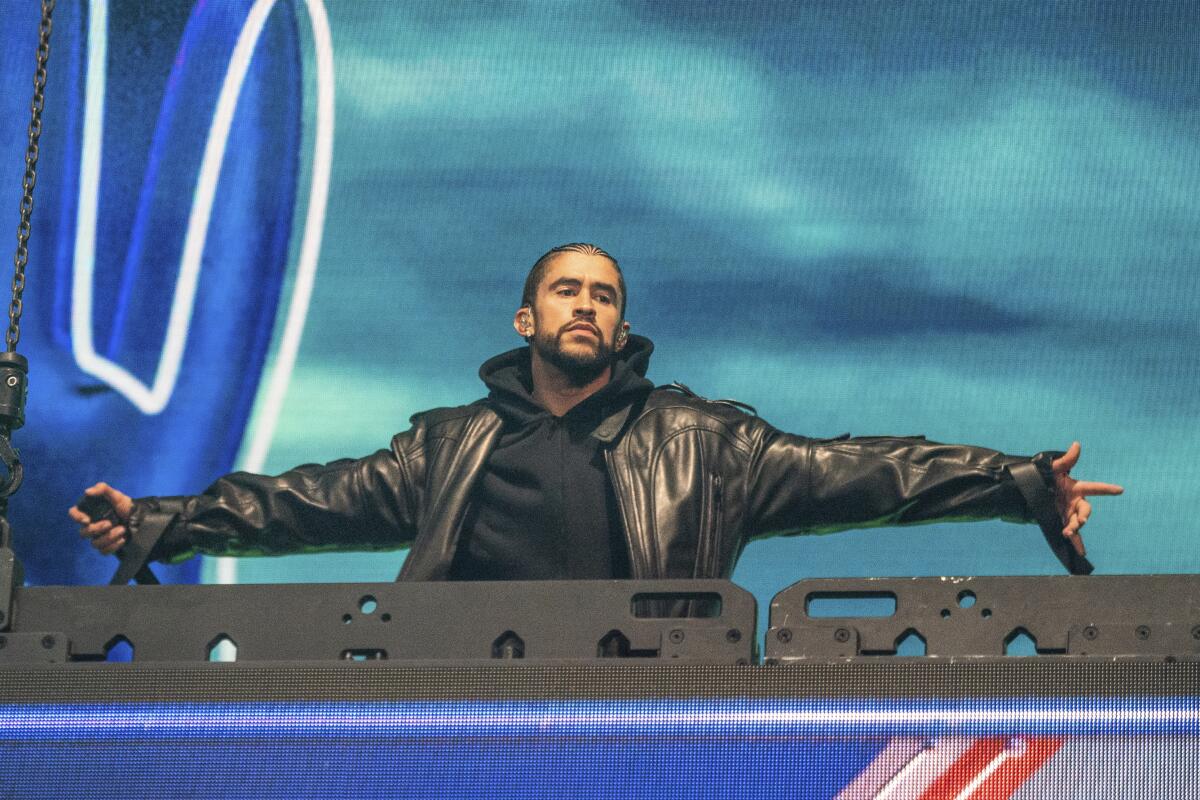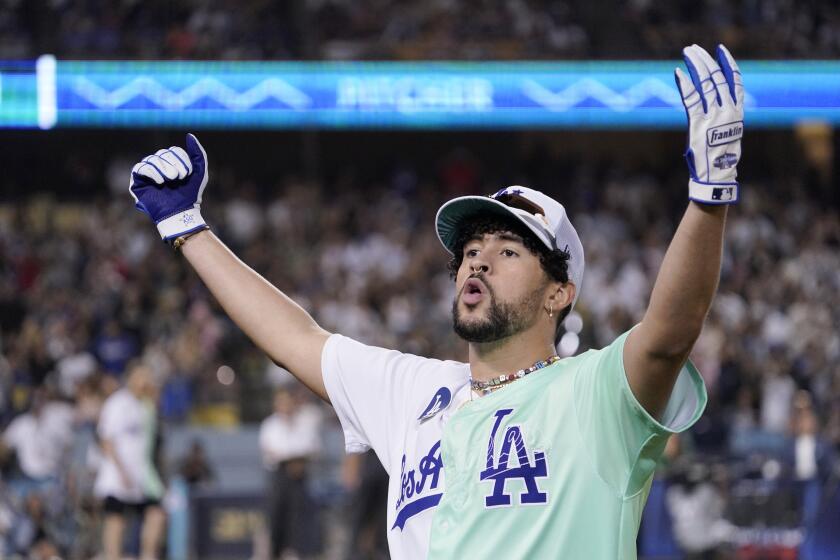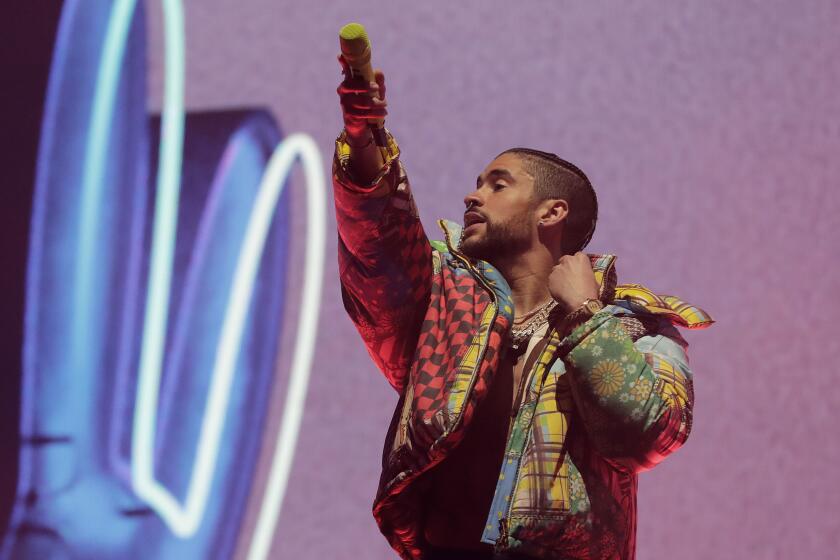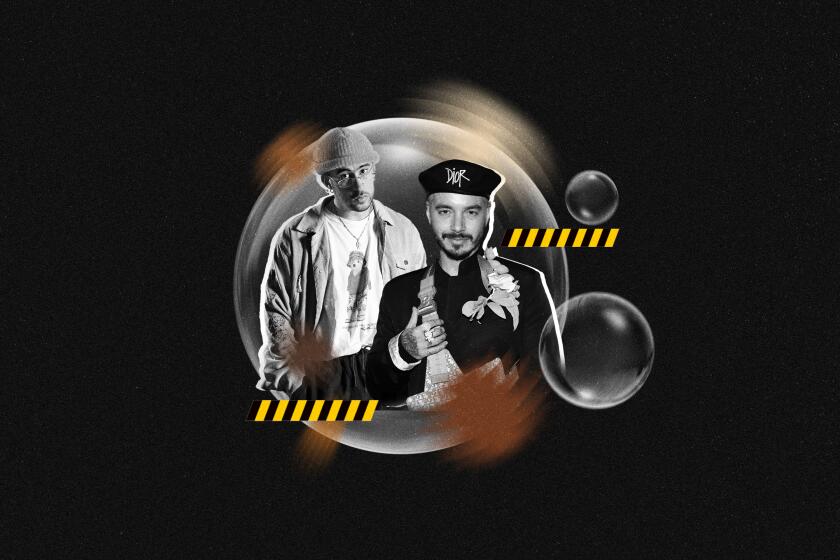Bad Bunny’s ‘Un Verano Sin Ti’ is now the most-streamed album on Spotify

- Share via
No es un álbumcito, es un álbumazo.
Bad Bunny‘s 2022 effort “Un Verano Sin Ti” has become the most-streamed album of all time on Spotify, the streaming platform confirmed to The Times. The title was previously held by Ed Sheeran‘s 2017 album, “Divide.”
The LP’s rise to the top should come as no surprise. Last year, the Puerto Rican artist became the first musician to be named the most-streamed artist in the world for three years in a row on Spotify.
Spotify has revealed the most-streamed artists and songs of 2022, and ‘Un Verano Sin Ti’ artist Bad Bunny leads the pack once again.
“Un Verano Sin Ti” was an immediate hit upon its release May 6, 2022, debuting at No.1 on the Billboard 200 albums charts. It was Bad Bunny’s second album — after 2020’s “El Último Tour del Mundo” — to debut at the top of the charts and only the second Spanish-language album to reach No.1 on the albums ranking. The festive yet contemplative record spent 13 weeks as the charts leader, the longest reign since Drake’s “Views” in 2016.
Bad Bunny became Spotify’s most-streamed artist ever in a single day following the LP’s debut, nabbing the title from his former “Mia” collaborator, Drake, with more than 183 million plays.
The album also made history at the 2023 Grammys when it became the first fully Spanish-language album to be nominated for album of the year.
Bad Bunny headlines opening night of Coachella, which will also feature sets from alt-rock favorites Blink-182, Blondie, Gorillaz and the Chemical Brothers.
In The Times’ review of “Un Verano Sin Ti,” columnist Suzy Exposito noted how Bad Bunny created a comprehensive view of his native Puerto Rico.
“Bad Bunny’s Puerto Rico is at once muse and political battleground,” she wrote. “It’s largely thanks to a global commercial interest in the island’s musical output, namely reggaeton, that Bad Bunny was able to launch his career in the first place; as a result, many a mainstream pop heartthrob has been rebranded in the image of Bunny and other Caribbean artists, furthering the gentrification of their sounds.
“In what feels like a course correction, ‘Un Verano’ presents reggaeton as what it is when it’s not mediated by market forces: a timeless heritage sound, in the same league as Caribbean party staples like merengue, salsa and mambo.”
In a recent Time profile, Bad Bunny was asked about colorism and anti-Blackness in reggaetón. His response was less than ideal.
This has been a year of firsts for the “Tití Me Preguntó” singer: In April he became the first Spanish-language artist to headline at Coachella.
The Times lauded Bad Bunny’s groundbreaking performance as a historic showing that not only showed his superstar abilities, but also contextualized his status among Latino musical greats.
“Bad Bunny relished his unprecedented triumphs with a two-hour musical marathon, fashioning several reggaeton and trap numbers ... into four-on-the-floor house jams suited for a rave,” Exposito wrote. “Between costume changes, fans were treated to a history lesson of reggaeton’s taxonomy, a narrated video montage that highlighted sounds that bubbled up from the unique social context of the Caribbean: Son Cubano, bomba, salsa, as well as reggae from Jamaica and Panama, were all woven into the sonic blend that eventually became reggaeton.
“Central to this evolution, stressed the narrator, were Black Latinos like 20th century composer Rafael Hernández Marín, salsa queen Celia Cruz, reggae en español pioneer El General and the legendary rapper Tego Calderón.”
More to Read
The biggest entertainment stories
Get our big stories about Hollywood, film, television, music, arts, culture and more right in your inbox as soon as they publish.
You may occasionally receive promotional content from the Los Angeles Times.










